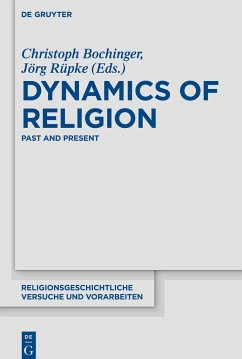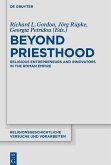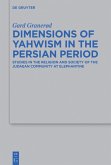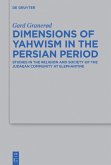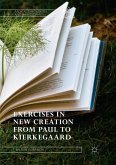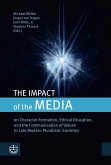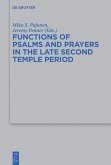Religious ideas, practices, discourses, institutions, and social expressions are in constant flux. This volume addresses the internal and external dynamics, interactions between individuals, religious communities, and local as well as global society. The contributions concentrate on four areas:
1. Contemporary religion in the public sphere: The Tactics of (In)visibility among Religious Communities in Europe; Religion Intersecting De-nationalization and Re-nationalization in Post-Apartheid South Africa;
2. Religious transformations: Forms of Religious Communities in Global Society; Political Contributions of Ancestral Cosmologies and the Decolonization of Religious Beliefs; Esoteric Tradition as Poetic Invention;
3. Focus on the individual: Religion and Life Trajectories of Islamists; Angels, Animals and Religious Change in Antiquity and Today; Gaining Access to the Radically Unfamiliar in Today's Religion; Religion between Individuals and Collectives;
4. Narrating religion: Entangled Knowledge Cultures and the Creation of Religions in Mongolia and Europe; Global Intellectual History and the Dynamics of Religion; On Representing Judaism.
1. Contemporary religion in the public sphere: The Tactics of (In)visibility among Religious Communities in Europe; Religion Intersecting De-nationalization and Re-nationalization in Post-Apartheid South Africa;
2. Religious transformations: Forms of Religious Communities in Global Society; Political Contributions of Ancestral Cosmologies and the Decolonization of Religious Beliefs; Esoteric Tradition as Poetic Invention;
3. Focus on the individual: Religion and Life Trajectories of Islamists; Angels, Animals and Religious Change in Antiquity and Today; Gaining Access to the Radically Unfamiliar in Today's Religion; Religion between Individuals and Collectives;
4. Narrating religion: Entangled Knowledge Cultures and the Creation of Religions in Mongolia and Europe; Global Intellectual History and the Dynamics of Religion; On Representing Judaism.
"Dabei zeigen die in dem Band versammelten Beiträge die Stärken, aber auch ein Stück weit die Aporien gegenwärtiger Religionswissenschaft. Ihre Stärken, um nur einige wenige Aspekte zu nennen, liegen etwa in ihren zumeist multidimensionalen und multiperspektivischen Herangehensweisen innerhalb eines breit gefassten kulturwissenschaftlichen Referenzrahmens, in der interdisziplinären Verstrebung mit benachbarten Disziplinen, in der selbstreflexiven Durchdringung aufgrund ihrer Opazität oder sogar Intransigenz oftmals schwer zugänglicher Phänomene, oder im Wagnis, die vor gestellten Überlegungen auch in größere Theoriezusammenhänge einzustellen."
Klaus Hock in: Theologische Literaturzeitung 142 (2017), 12, 1306-1308
Klaus Hock in: Theologische Literaturzeitung 142 (2017), 12, 1306-1308

